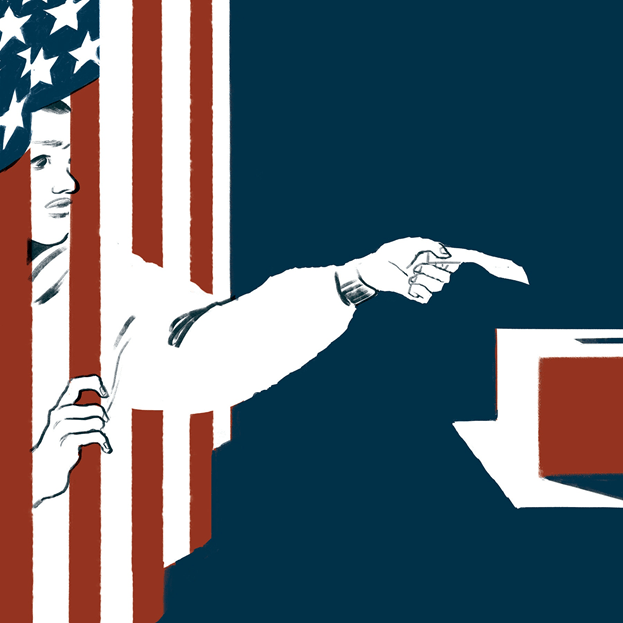Felony Disenfranchisement in US Jail Systems
Holding county jails accountable for providing ballot access is crucial.

Felony disenfranchisement is the denial of the right to vote for those convicted of felony crimes. Each state has different laws determining if felons lose the right to vote. How long felons lose the right to vote and how they regain the right to vote, if at all, is also determined state by state. This creates a confusing system that deters those with the right to vote from voting.
Voting rights do not end at the door of a holding cell. People who are in jail are often awaiting trial, conviction, or being held for minor crimes. In most states, these people are eligible to register and vote, and no eligible voter should be denied their right. Yet, there is a sharp difference between being simply eligible to vote or register, and being able to make one’s voice heard.
There are roughly 750,000 Americans in jails and most of them are legally allowed to cast ballots. But few successfully participate in the voting process because people in jail are forced to rely on sheriffs and county officials to allow them access to the ballot. In Pennsylvania for example, county jails do not have a universal process for voter registration, voting by mail or voter education to make sure that their jails guarantee this right.
A recent report by All Voting is Local, in partnership with Committee of Seventy and Common Cause Pennsylvania, found that that eligible voters in Pennsylvania jails face needless barriers to the ballot. Most counties surveyed lack any policy to ensure voters could make their voices heard. Across Pennsylvania, county jail administrators are not fulfilling their legal responsibility to voters.
The survey was sent to 61 counties asking about their policies toward voting in jail. While 75% of county jails responded, the majority of counties had no policy at all, and those that did, did the bare minimum to communicate those policies. The problem is stark. Only 52 people out of 25,000 jailed throughout Pennsylvania requested mail ballots in the 2020 general election using an address associated with one of 18 county jails.
Similar reports from All Voting is Local in Arizona and Wisconsin showed similar barriers to voting among county jail systems.
When eligible voters are denied the right to vote, not only are their voices silenced but also the voices of their families and communities. This alienates these communities from the political process and increases the number of Americans that have lost faith in our democracy.
You can read the report from All Voting is Local here -- Ballots for All: Holding Pennsylvania County Jails Accountable for Providing Ballot Access










